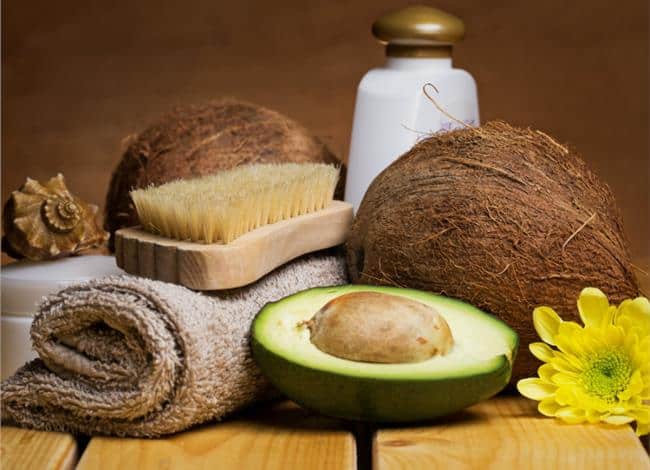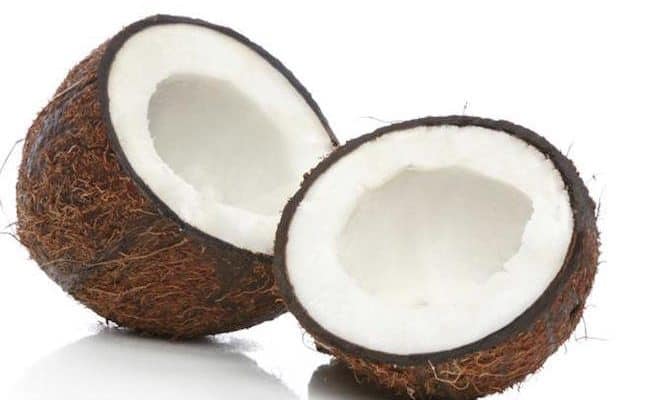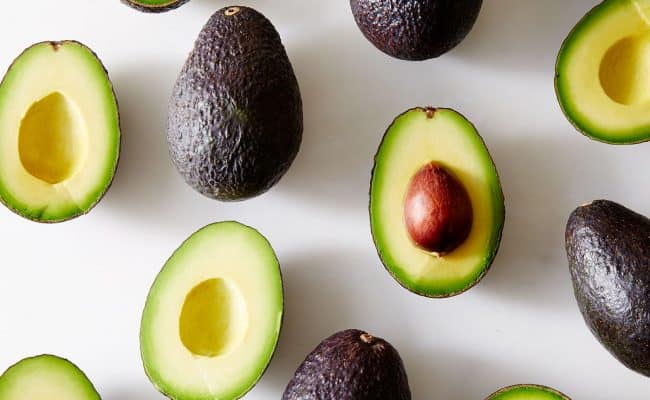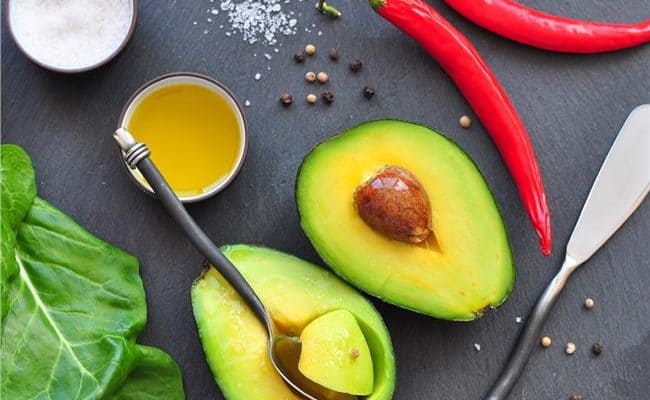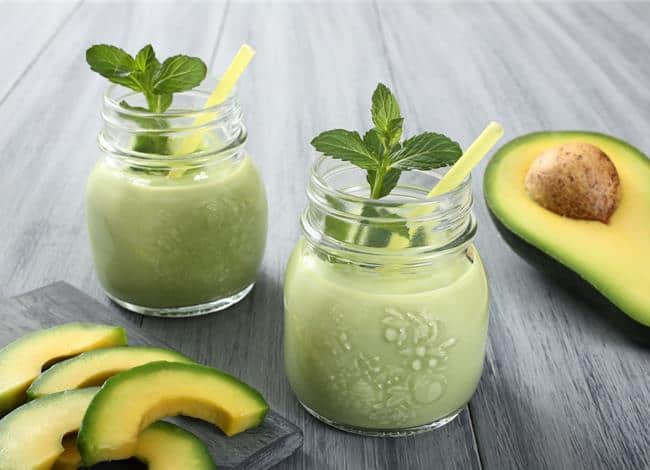
The fear that eating fat will make you fat is a myth. In fact, many research studies have shown the benefit of eating the right type and amount of fat can be beneficial for weight loss and health.
In particular, eating higher amount of monounsaturated fats can be beneficial for heart health and weight.
In fact, research from Penn State (1) suggests using oils high in monounsaturated fats, like olive or canola oils can help lower risk for metabolic syndrome. Their research also found people lost more belly fat when consuming canola oil compared to flax/safflower blend as part of a low calorie diet.
Fats shouldn’t be feared for weight loss, but choosing foods high in monounsaturated fats, like the foods listed below, is key. There is still little nutritional value for most fried foods and foods that are high in sugar and fat.
Avocados
Avocados are a rich source of monounsaturated fat. A serving of about one fifth of an avocado provides 4.5 grams of fat with 3 gm coming from monounsaturated fat (2). Avocados also are a source of vitamins C, E, B vitamins, zinc, magnesium, copper and manganese, and a serving provides about 2 grams of fiber.
A 2015 study (3) put 45 overweight people on either a low fat diet (24% calories from fat), moderate fat diet including eating 1 avocado per day (34% calories from fat) and a moderate fat diet with similar fatty acid profile as the avocado group but using plant oils.
Participants ate this diet for 5 weeks. Researchers found the avocado group significantly lowered LDL cholesterol, specifically small, dense LDL particles which are considered more damaging for heart health.
Researchers concluded that eating an avocado per day as part of a moderate fat, heart healthy diet can help lower LDL cholesterol.
Nuts
Nuts combine monounsaturated fat, fiber, protein and are a source for many vitamins and minerals. The combination of protein and fiber can be helpful for keeping you feeling satisfied, and eating foods high in protein and fiber may be helpful for weight loss.
Even though nuts are calorically dense, epidemiological studies have shown an inverse association with eating nuts and BMI (4).
The reasons for this association could be that eating nuts are satisfying which could lower food intake after eating them. The calories from nuts are also not absorbed well, so not all the energy from nuts are used by the body. Some research has also shown a small increase in metabolism after eating nuts.
The general recommendation for eating nuts is about an ounce per day, which is about a small handful. Eating nuts as a snack during weight loss may be more helpful than reaching for a high carbohydrate, low fat snack.
A 2010 study (5) found after 12 weeks, participants who ate an ounce of pistachios while on a low calorie diet had lower triglycerides than the group that ate a low calorie diet with a pretzel snack.
Full fat dairy
Recent research studies (6) have suggested that eating full fat dairy products were actually associated with a lower risk for obesity.
This seems counterintuitive for many people because we associate full fat dairy products as higher in saturated fat and calories.
Health guidelines still promote a diet lower in saturated fat, so how could eating full fat dairy instead of low fat dairy possibly help lower risk for obesity?
At this point, researchers are still unclear of how the relationship works. It may be that, like nuts, eating full fat dairy provides more satisfaction which can lower inhibition to eat later.
However, health experts are still cautious of giving the full green light to eat however much you want of full fat dairy.
If you have a history or at risk for cardiovascular disease, eating higher amounts of saturated fat can be contraindicated. Speak with your doctor if you have more questions about changing your diet for heart health.
Mediterranean diet
The Mediterranean diet is high in fruits, vegetables, whole grains, seafood, olive oil, legumes, nuts and seeds and limits the intake of sweets and red meat.
The Mediterranean diet has been shown to reduce the risk of heart disease, cancer, Alzheimer’s and Parkinson’s disease (7).
This diet pattern is high in fiber, antioxidants and monounsaturated fats. Eating a diet high in monounsaturated fats, like from nuts, olive oil and avocados, may actually help prevent fat distribution around the gut.
A small 2007 study (8) put overweight males into 3 categories for 28 days: diet primarily with saturated fat, diet primarily with monounsaturated fat and a diet higher in carbohydrates. All diets provided the same amount of calories, and all participants tried the three different diets.
Researchers found the diet high in monounsaturated fat prevented central fat distribution.
What is the recommended amount of fat per day?
The general guideline for fat intake is between 25-35% of calories per day. Fat intake can be on the higher range if the fat is mostly coming from monounsaturated fats. Trans fats should be avoided and should make up less than 1% of calories (9).
Conclusion
Following a Mediterranean diet which is higher in antioxidants, fiber and monounsaturated fats is associated with many health benefits.
Eating foods high in monounsaturated fats, like avocados, nuts and olive oil, may be helpful for weight loss. In fact, eating a diet high in monounsaturated fat may actually help prevent fat gain around the midsection.
Full fat dairy products are high in saturated fat, but recent research studies suggest that eating full fat dairy may help protect against weight gain. More research is needed.
Remember to see your food intake from a big picture perspective. It’s not just how much monounsaturated fat, protein or carbohydrate you are getting.
It’s important to eat nutrient dense foods and make sure you are getting a variety of nutrients from food sources.
